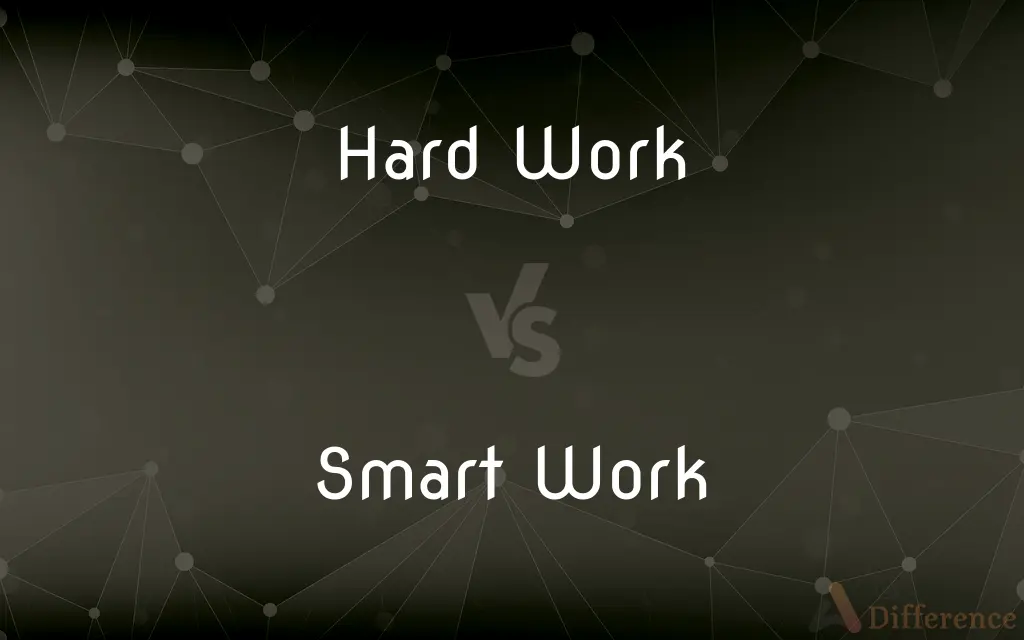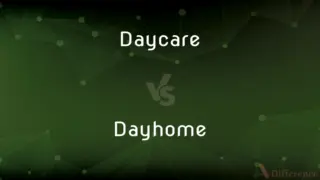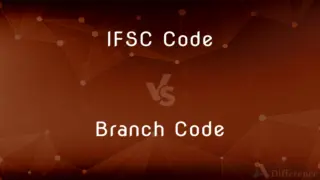Hard Work vs. Smart Work — What's the Difference?
Edited by Tayyaba Rehman — By Fiza Rafique — Published on November 2, 2023
Hard Work emphasizes persistence and effort, often irrespective of strategy, while Smart Work prioritizes efficiency and effectiveness in achieving goals.

Difference Between Hard Work and Smart Work
Table of Contents
ADVERTISEMENT
Key Differences
Hard Work and Smart Work, while both crucial concepts in the realm of productivity and success, have distinct undertones and implications. Hard Work is generally characterized by dedication, persistence, and sometimes sheer willpower. It focuses on putting in time, energy, and often physical effort to accomplish a task. In contrast, Smart Work is all about leveraging resources, tactics, or strategies to achieve the desired outcome with minimal wastage of time and energy.
Hard Work can be envisioned as the traditional grind where individuals might toil for long hours, pushing their limits. It's the burning of the midnight oil, the sweat on the brow, and often a linear correlation between time spent and results achieved. On the flip side, Smart Work thrives on optimization. It’s the strategic delegation, the use of technology, or innovative problem-solving. It’s finding shortcuts, not to cut corners on quality, but to reach the goal more efficiently.
A person employing Hard Work might take pride in the hours they’ve clocked or the physical exertion they’ve put into a project. It represents commitment, resilience, and often a hands-on approach. Meanwhile, someone who emphasizes Smart Work would likely value results over hours spent. They’d find satisfaction in having navigated a task or problem with astuteness, using resources and strategies effectively.
In essence, while Hard Work underscores the journey and the effort involved in it, Smart Work is more about the destination and the most efficient route to get there. Both have their merits, and often the most successful outcomes are achieved when they are combined – working hard and working smart.
Comparison Chart
Focus
Effort and persistence
Efficiency and effectiveness
ADVERTISEMENT
Time Investment
Often requires long hours
Seeks to minimize time spent
Approach
Linear: more time equals more results
Strategic: better strategies lead to better outcomes
Value
Dedication and resilience
Innovation and optimization
Result Correlation
Directly related to the effort put in
Related to the efficiency of the strategy used
Compare with Definitions
Hard Work
Hard Work is putting in sustained effort over time.
Her success was a direct result of her consistent Hard Work.
Smart Work
Smart Work aims to reduce unnecessary effort or time wastage.
By streamlining the process, his Smart Work benefited the entire team.
Hard Work
Hard Work often requires physical or mental exertion.
The team's Hard Work in training paid off during the match.
Smart Work
It’s about strategic problem-solving and decision-making.
She showcased Smart Work by identifying and targeting the project's critical issues.
Hard Work
Hard Work can often lead to mastering skills or crafts.
Through years of Hard Work, he became a master carpenter.
Smart Work
Smart Work is about achieving goals with optimal effort.
By delegating tasks, she exemplified Smart Work.
Hard Work
It emphasizes dedication and commitment to a task.
His Hard Work and determination saw the project to completion.
Smart Work
It prioritizes efficiency and resourcefulness.
Using the new software is a form of Smart Work, saving hours each day.
Hard Work
It is sometimes seen as a measure of character and resilience.
Her Hard Work proved she was ready for any challenge.
Smart Work
Smart Work often leverages technology or innovative methods.
His Smart Work involved using a new app to automate the process.
Common Curiosities
Is Hard Work only about physical labor?
No, Hard Work can refer to both physical and mental effort.
Is Hard Work always time-consuming?
Often, Hard Work involves longer hours, but the emphasis is on persistent effort.
How does technology relate to Smart Work?
Technology can be a tool in Smart Work, streamlining tasks and improving efficiency.
What fundamentally differentiates Hard Work from Smart Work?
Hard Work emphasizes sustained effort and persistence, while Smart Work focuses on achieving goals efficiently.
Can Hard Work compensate for lack of strategy?
Sometimes, but working harder without a clear strategy can lead to inefficiencies.
Does Smart Work mean putting in less effort?
No, Smart Work is about maximizing results with optimal effort, not necessarily less effort.
Do all jobs or tasks require both Hard Work and Smart Work?
Not all, but many tasks benefit from a blend of dedication (Hard Work) and strategy (Smart Work).
Do successful people tend to lean more towards Hard Work or Smart Work?
Many successful individuals harness both, ensuring their efforts are both dedicated and strategically directed.
Can Hard Work and Smart Work be combined?
Yes, many successful outcomes arise from blending both approaches.
Is Smart Work the same as taking shortcuts?
No, Smart Work aims for efficiency without compromising on quality.
Which approach is more valuable in today's fast-paced world?
Both have value, but in a rapidly changing environment, Smart Work can offer competitive advantages.
Is Hard Work more about the journey, and Smart Work about the destination?
Generally, yes. Hard Work values the effort in the process, while Smart Work emphasizes the end goal.
Is one universally better than the other?
No, the value of Hard Work vs. Smart Work often depends on the context and specific goals.
Which approach is more likely to lead to burnout?
Continuous Hard Work without efficiency can lead to burnout faster than Smart Work.
Is Smart Work a modern concept?
While the term might be modern, the concept of working efficiently has always been valued.
Share Your Discovery

Previous Comparison
Daycare vs. Dayhome
Next Comparison
IFSC Code vs. Branch CodeAuthor Spotlight
Written by
Fiza RafiqueFiza Rafique is a skilled content writer at AskDifference.com, where she meticulously refines and enhances written pieces. Drawing from her vast editorial expertise, Fiza ensures clarity, accuracy, and precision in every article. Passionate about language, she continually seeks to elevate the quality of content for readers worldwide.
Edited by
Tayyaba RehmanTayyaba Rehman is a distinguished writer, currently serving as a primary contributor to askdifference.com. As a researcher in semantics and etymology, Tayyaba's passion for the complexity of languages and their distinctions has found a perfect home on the platform. Tayyaba delves into the intricacies of language, distinguishing between commonly confused words and phrases, thereby providing clarity for readers worldwide.













































